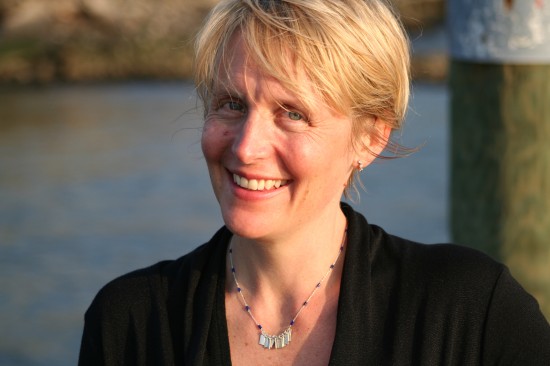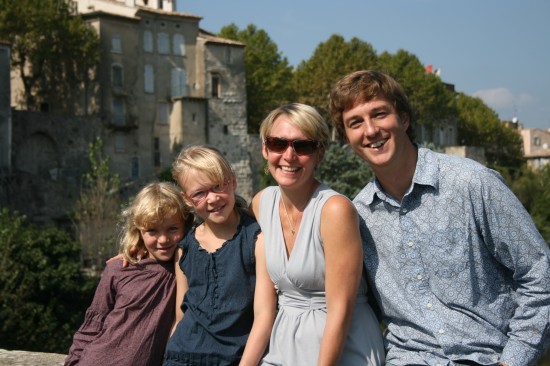Elizabeth writes about making an explicit choice to live her life more mindfully. To “let time pass at its true pace.” This, of course, speaks directly to the heart of everything that is sacred to me right now. She expresses beautifully how her commitment to mindful living has changed the way she sees and interacts with the world. Elizabeth writes – and lives – in a way that I aspire to. She truly seems to focus on what is right in front of her, and the evocative way she speaks of what she sees convinces me even more that this is the road to the true riches of this life. In this way, she is a teacher and a guide and an inspiration, and her blog is one of my absolute favorites out there in the wilds of the internets.
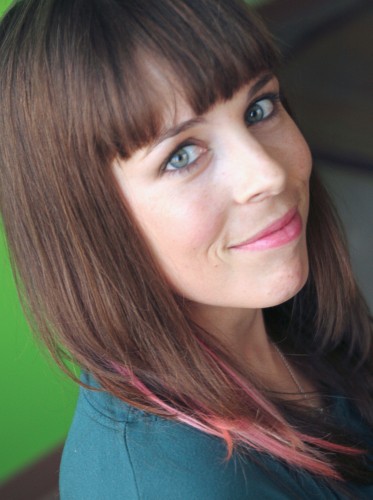
1. When have you felt most present? Are there specific memories that stand out for you?
The times I have felt most present for extended periods of time (like, an hour or more) have been during the labors of all three of my sons, in yoga – specifically savasana, when making art, or listening to live music. I also have a lot of random instances I could mention. There are times I intentionally remain where I am, taking in the moments with all my senses rather than letting my mind wander. Lying in bed with my 6 year old talking about his day, hanging out with my 3 year old just the other day, or on the bus on the way to work. I’ll keep my iPod tucked in my bag and my book closed, and I’ll take it all in. The road, the people out the window, the other passengers on the bus. I watch what people are doing, I listen to the snips of conversation around me, I smell the mix of perfume and coffee and cigarette smoke lingering on someone’s jacket, I feel the hard seat and the bumps of the drive. Sure, there are days when I travel that whole route without paying one bit of attention to where I actually am, letting my music or my book or my mental anxiety or to-do list transport me. But most days, I like to be where I am, fully.
When I was writing my thesis in grad school, I had a 2 year old and was pregnant with my second kid. I would often find myself reading him a book while I was analyzing statistics in my head. I really struggled with being present on those days at home because my research felt all-consuming. But when I really worked at it and tried to just be mentally where I was physically, I felt so much better.
2. Do you have rituals or patterns that you use to remind you to Be Here Now?
The first and easiest tool I have is to turn off the music or shut the computer. Those distractions are half the battle.
Breathing always helps, as does visualization (which I describe in a response below). It also helps me to remember being in labor with my three kids. When I experience emotions and thoughts that hurt or scare me or stress me out, I try to breathe and to lean into those feelings. To give up on resisting them or stuffing them away or distracting myself from them, and instead I let them wash over me (like a contraction). Because it’s not going to kill me to feel something that isn’t easy to deal with. In fact, by acknowledging my thoughts and feelings and letting them wash over or through me, I come out the other end having made some progress, not unlike in labor. Now when I catch myself ‘somewhere else’ and it’s because my mind is wandering to everything else rather than where I am, I try to let go of whatever I’m thinking about and notice where I am with all my senses. I listen, I look, I touch, I smell. (And with food – I taste. How easy is it to shovel an entire meal down my throat without tasting it because I was thinking about something else or checking my email or editing a report?)
All of it – I soak it all in, let the experience add another layer of texture to me, let it become part of me as I move on, take the next step, inahle – exhale. It’s so easy to run through life on Auto-Pilot, getting from Point A to Point B without noticing where we are or what we’re actually doing. I could hop on the bus and end up at work without noticing one thing about the weather or what’s going on out the window or in the seat next to me because I’m so distracted by my own brain. But when I mentally put down the juggling act in my head and just focus on being where I am, I feel my pulse slow down and a (relative) calm set in despite whatever is on my plate for that day (or month, or year).
Geez, the last thing I want to suggest is that this is easy or that I handle it the way I’d like to all the time. But through practicing yoga and meditation, it has come much more naturally than it used to.
3. Do you have specific places or people that you associate with being particularly present? Who? Where? Any idea why?
Yoga, contemplative writing practice, the shore of Lake Michigan, the early days with a new baby (I rarely read or watched TV while nursing. I liked to just watch my baby. To be there mentally. It’s amazing how easy it is to be in the middle of next week or next year when really you’re sitting on the couch in your living room with a baby on your breast). On the flip side, where have I been least present? In church, growing up. I would spend the entire service following a train of thought, and then randomly stopping and asking how I got there, then following the train of thought backwards until I got back to where I started, which I had always forgotten until I got back there. It was my favorite game. And also – driving. I am rarely really where I am when I’m driving. My mind is back in high school or it’s 20 years into the future or it’s solving the sorrows of the world or it’s on Mars or wherever, but certainly not on that stretch of road that I’m driving at that moment.
4. Have you ever meditated? How did that go?
Yes. I am part of a contemplative writing practice (ala Natalie Goldberg) that meets weekly. We start the practice (after a brief check-in and hello) with a sitting meditation (then we listen to a writing prompt and follow with 20 minutes of free writing). I love it. I also meditate during Savasana in yoga practice, and during Restorative Yoga sessions. I keep my attention on my breath, when I notice thoughts and obligations and next week’s worries or my grocery list popping up or lingering, I acknowledge the thoughts and then release them. They are bound to pop up, at least for a novice like me. A visualization that helps me is that of raindrops falling in a river. Whatever these thoughts or worries or to-do’s are, I see them falling, they’re very much there. But when they land in the river, they dissipate and flow downstream. And I stay where I am, letting the river flow past and through me, letting thoughts flow on past while I just stand there, just being, in the river and the rain. It has been an incredibly helpful visualization for me.
5. Has having children changed how you think about the effort to be present?
Truthfully, I never gave any thought to being present before I had kids. Looking back, I see that I fluctuated between extremes. In college I was always multitasking, finding distractions to help me escape the present when I needed it. But then also being able to fully just be wherever I was and to soak in my surroundings through all of my senses without any thought to tomorrow’s schedule or obligations. Right before we got pregnant with our first son, my husband and I took a several-month-long road trip with no itinerary or schedule. We traveled down Highway 1 from Seattle to San Diego and then into the southwestern states and eventually back to Wyoming (from where we started). I was incredibly present on that trip. We drove until we felt like stopping, and we stayed where we were as long as we felt like it. Sometimes staying four weeks in one place, other times just an afternoon. It was incredibly freeing and we grew so close on that trip. And now, with kids, I can’t even imagine taking a trip like that. I’m sure it’s do-able, but I think it would be a lot harder for me.
Oh, with music I am remarkable fickle. Lately, I find myself coming back to Mike Doughty – both the Rockity Roll album (especially Down on the River by the Sugar Plant and Ossining) and Haughty Melodic. Also anything by Ben Folds, and randomly — very old school Smashing Pumpkins. I also could listen to the Garden State soundtrack on repeat for the rest of my life. Another song that pops to mind with nostalgic value: Pictures of You by The Cure. Have you heard the PS22 Choir from NYC sing this? My lord. Search my blog for a clip. Tears, every time. Oh, I love Ingrid Michaelson, although I haven’t listened to her in months. This really isn’t even a slice of the songs that move me.
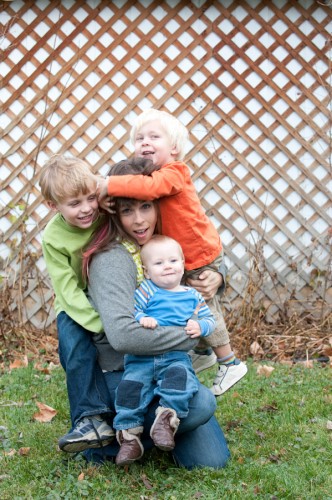 Well, there is so much here that I relate to that I have to be careful not to just quote everything Elizabeth says. Never gave much thought to being present and aware until I had kids? Um, yes. Never even occured to me. It was not until I had these living, breathing yardsticks of time’s passage in front of me that I realized how much I was missing. It’s amazing, how true that cliche is about children being our teachers, isn’t it?
Well, there is so much here that I relate to that I have to be careful not to just quote everything Elizabeth says. Never gave much thought to being present and aware until I had kids? Um, yes. Never even occured to me. It was not until I had these living, breathing yardsticks of time’s passage in front of me that I realized how much I was missing. It’s amazing, how true that cliche is about children being our teachers, isn’t it?The contemplative writing group sounds extraordinary, and I think I need one (any takers in the Boston area?). Fickle with music (and yet needing to turn it off to have a prayer of being focused?)? Moi aussi. Labors being among of the most vivid and present moments of your life? Yes. The powerful lessons of Buddhism, that for now feel complimentary to a Christian upbringing? Yes.
Elizabeth, I am impressed and inspired by you, by your commitment, by the strength of your spirit. You are an example, a shining and honest and human one, of what it looks like to really let your minutes be 60 seconds long (to paraphrase you). Thank you for sharing your kindness, your wisdom, your brilliance, and your humanity with us today. Thank you for you.

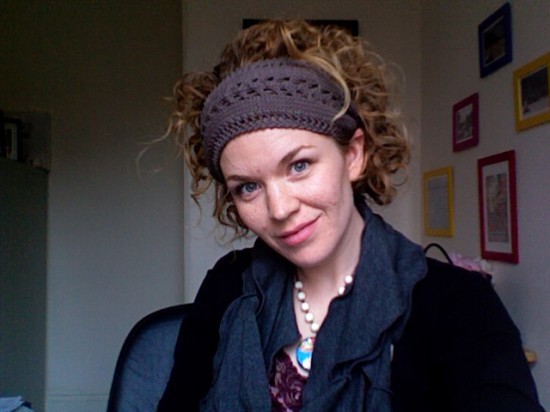
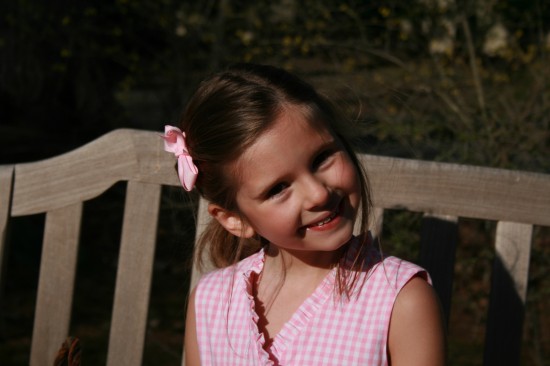
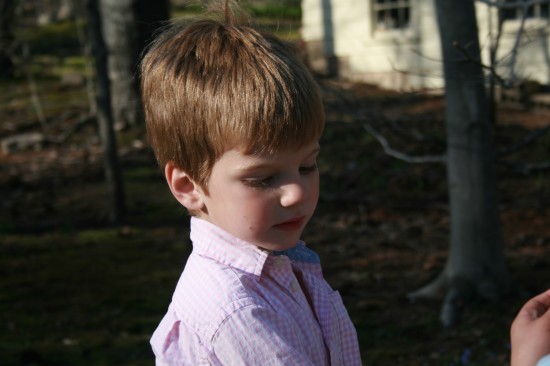 I don’t have much in the way of words today, feeling heavy-hearted and wistful as I do, and so I am even more grateful than usual to read
I don’t have much in the way of words today, feeling heavy-hearted and wistful as I do, and so I am even more grateful than usual to read 